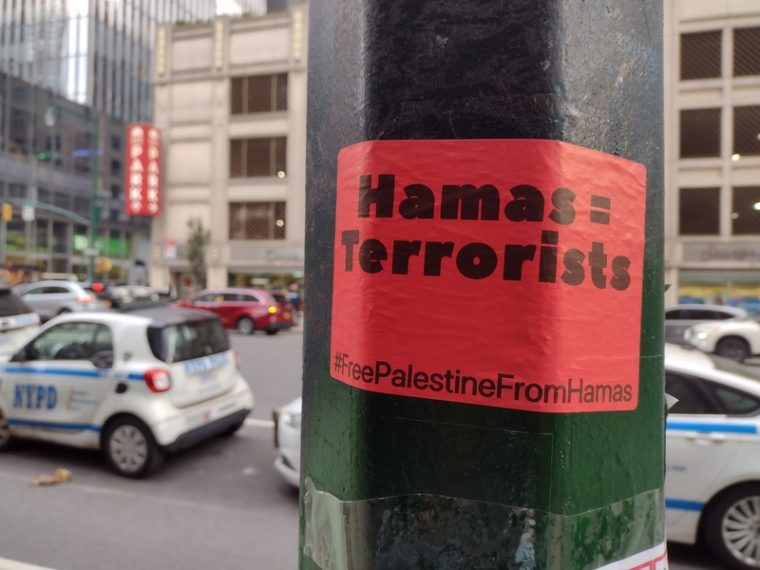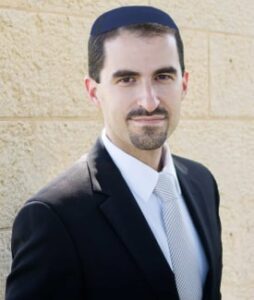

Elie Klein, ADI’s development director, said Shabbats normally are restful at ADI-Negev, but such was not the case on Saturday, Oct. 7, the day Hamas terrorists stormed into Israel, murdering 1,200 people, kidnaping approximately 240 more, and setting into motion the current war in which the Israeli government has vowed to eliminate the ability of Hamas terrorists to ever again mount such an operation against Israel.
On that day, some of the terrorists followed Route 241 past ADI-Negev to neighboring Ofakim where they murdered 50 people and wounded many more. “They did not touch us at all,” Klein recounted. “We were sitting ducks that day. We had no security whatsoever.” There was just a guard at a gate with an arm that lifts up to permit motorists to enter the campus. “Other than that, we didn’t have any armed guards. Seven of our employees happened to be on campus with guns because they are IDF reservists, but other than that, we had nothing. We were sitting ducks – the most vulnerable members of Israeli society – and miraculously they did not touch us.”
Because it was Shabbat, the special education students were not on campus. However, the 170 residents who live at ADI-Negev year-round were on campus and so were 72 patients at the Kaylie Rehabilitation Medical Center, named for New York area philanthropists Gloria and Harvey Kaylie.
The permanent residents have disabilities that are not just “physical, cognitive, sensory, social, emotional, and intellectual, but all of the above, all at the same time,” Klein related in a telephone call from his home in Israel. “Each of them have their own cocktail of disabilities which show themselves in different ways, but what they have in common is that [their conditions] are so severe that mom and dad cannot care for them at home – not because they don’t want to but because they physically cannot. They don’t have the tools. The don’t have the know-how or the resources.”
The Kaylie Rehabilitation Medical Center “is the first and only rehabilitation center in Israel’s south and we have two of our three wards open – 36 beds each for a total of 72 beds,” Klein said. The patients are at the hospital because of some event in their lives – a heart attack, a stroke, a car accident, a terror attack, or a wound in war. “
Around nightfall on Oct. 7, six young women, “battered, bloodied, and bruised” arrived at the gate from the Supernova Sukkot Gathering, the open-air music festival where Hamas terrorists that morning had murdered 364 civilians and took 40 hostages. They had been “running and hiding, running and hiding for 10 to 12 hours” before they made it to ADI-Negev, a distance of about 10 miles.
ADI-Negev gave the young women medical treatment, food, and water. A 36-member battalion of the Israel Defense Force, along with local police, came that evening to ADI-Negev with the names of all the people who had paid for tickets at the music festival if any of them made it to the campus. The police took the young women home to their families, and the IDF, realizing that the campus had no protection, moved a battalion of 36 people into the orthopedic ward of the Kaylie Rehabilitative Medical Center. For protection, those orthopedic patients previously had been moved to the neurological ward, which sits within a bomb shelter.
“It was a little crowded—we had some beds in the hallway –but that meant that the orthopedic ward was empty,” Klein commented. “When this battalion of soldiers came, they took over that ward as their army barracks.” It has only been a couple of weeks since the soldiers departed, and the orthopedic patients have been returned to their ward. The special education school has been reopened as well.
However, matters still are far from what they were prior to the October 7th invasion, Klein said. “We usually have 700 employees, but in the weeks following October 7th, we were operating with about 500 employees, wo we were really understaffed.”
Not all of the employees who left are even now able to return, having been relocated from their homes in the south to relocation centers in central Israel, or having been called up as IDF reservists, or dealing with such issues as no one available to care for their children.
The shortage of staff has resulted in some constriction of enrichment schedules. For example, children at the special education school can’t go to the playground as often as they did previously because there are not enough people available to accompany them. This situation has been eased somewhat by volunteers from high school and from visiting groups, such as the Jewish National Fund-USA, which has invested heavily in ADI-Negev as part of its goal to bring more businesses and housing to the Negev and thereby lure new residents there.
Klein said that at the rehabilitation hospital “to the extent that we are able, we are fast-tracking” treatment. “There are so many people in crisis throughout the country,” he explained. “Including ours, there are 922 rehabilitation beds in the country, but there are about 10,600 people who have been wounded since Oct. 7 and 500 of them as brand-new amputees.” He estimated that 2,000 people who were able-bodied and neurotypical before the war now have disabilities that dramatically changed their lives. “We have a big weight on our shoulders concerning how we are going to plug into this crisis, how we are going to help ease this crisis.”
Already, a few citizens of the south are being treated for post-Oct. 7 disabilities, some as in-patients, some as out-patients and “we have a few soldiers as well receiving inpatient care.”
Klein made Aliyah to Israel about 15 years ago, having grown up in Baltimore and worked in New York for eight years before making the move. He packs appointments in the US into the months of November and February, spending the other 10 months of the year with his family in Beit Shemesh and his ADI family about 50 miles away in the Negev. He has tentatively scheduled a visit to San Diego in February.
Donald H. Harrison is publisher and editor of San Diego Jewish World. He may be contacted via [email protected]. This article is republished from San Diego Jewish World which, along with The Moderate Voice, is a member of the San Diego Online News Association.
Top photo: Dreamstime
















